from 4 reviews
15
Up to 30 days
1 people
English, Espanol, Nederlands
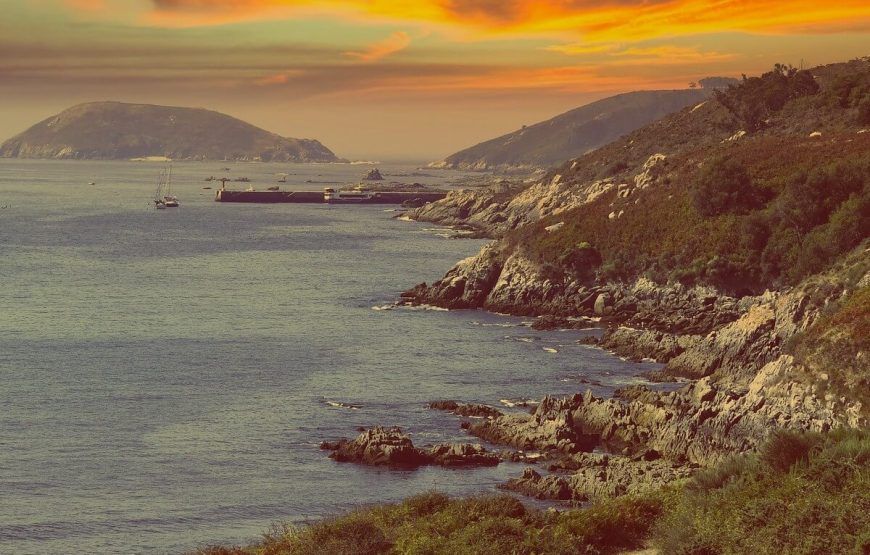
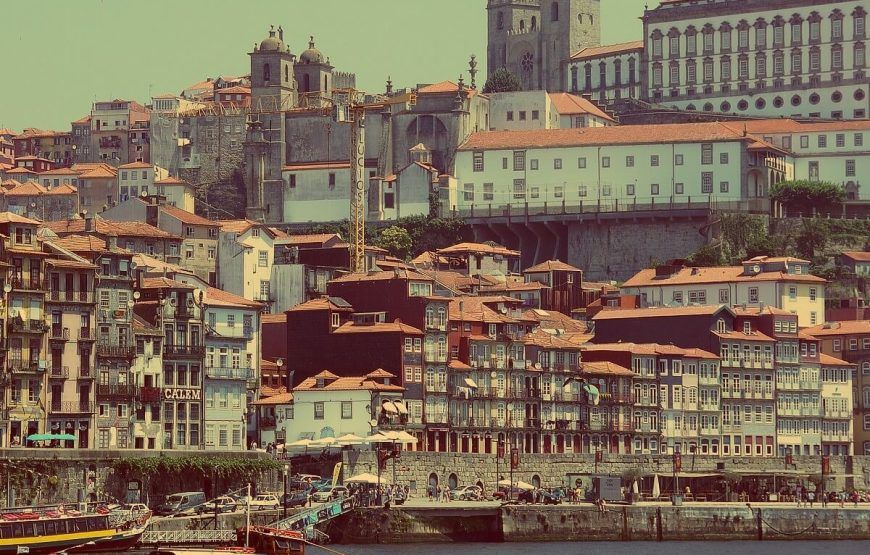
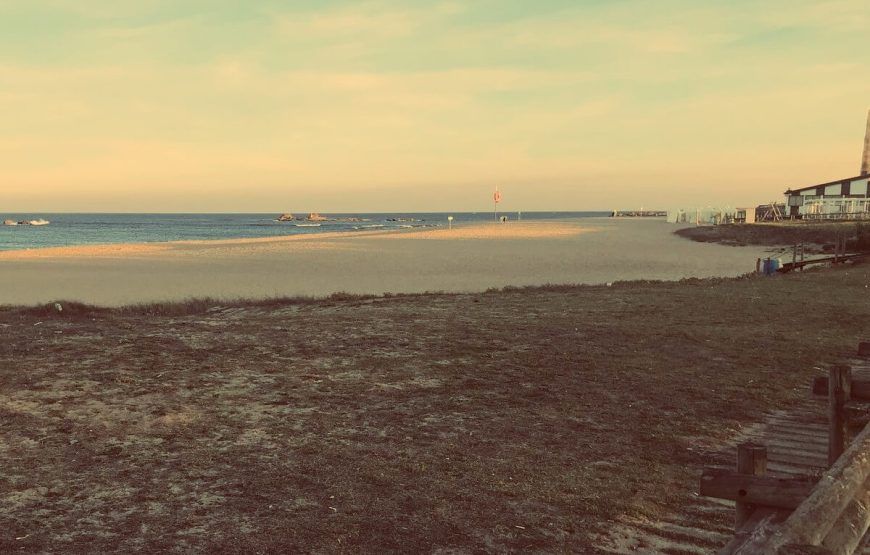
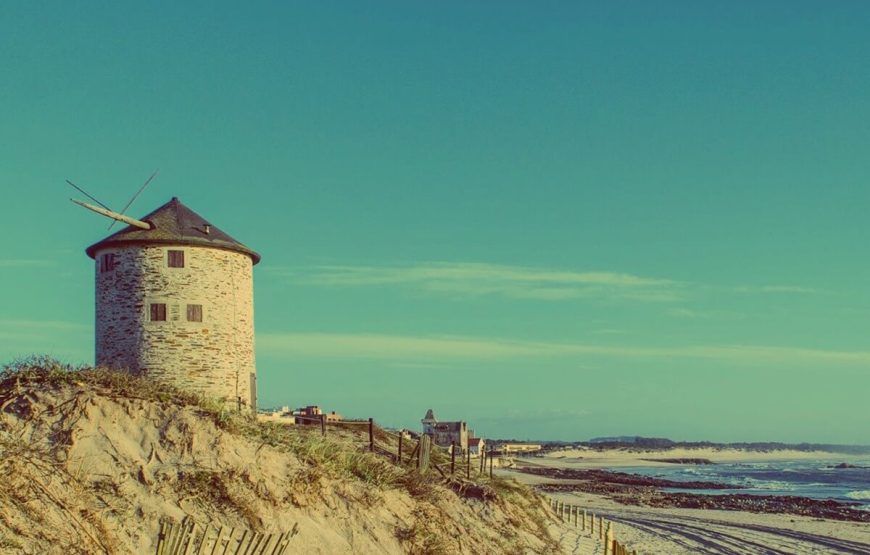
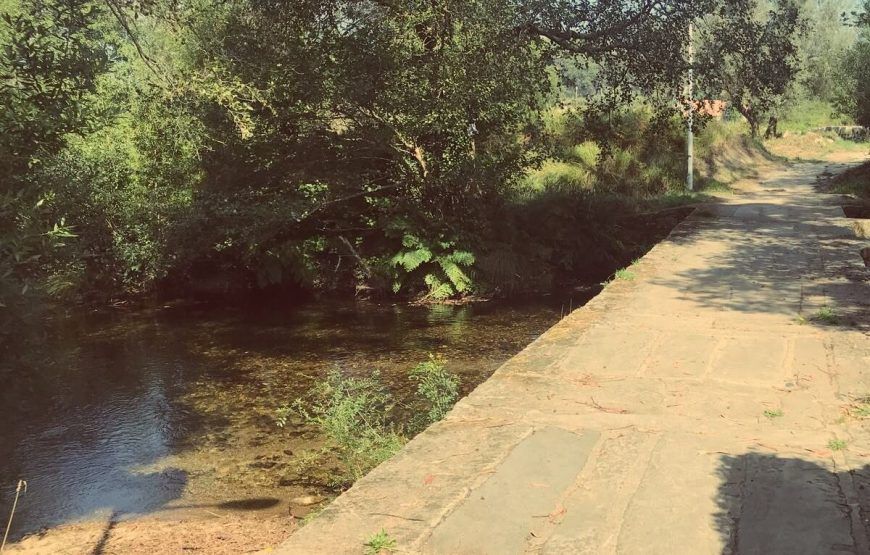
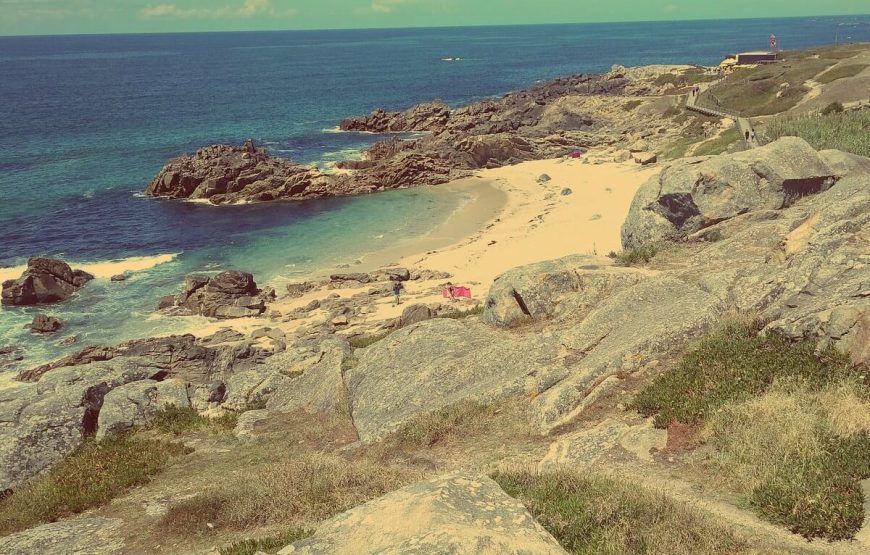
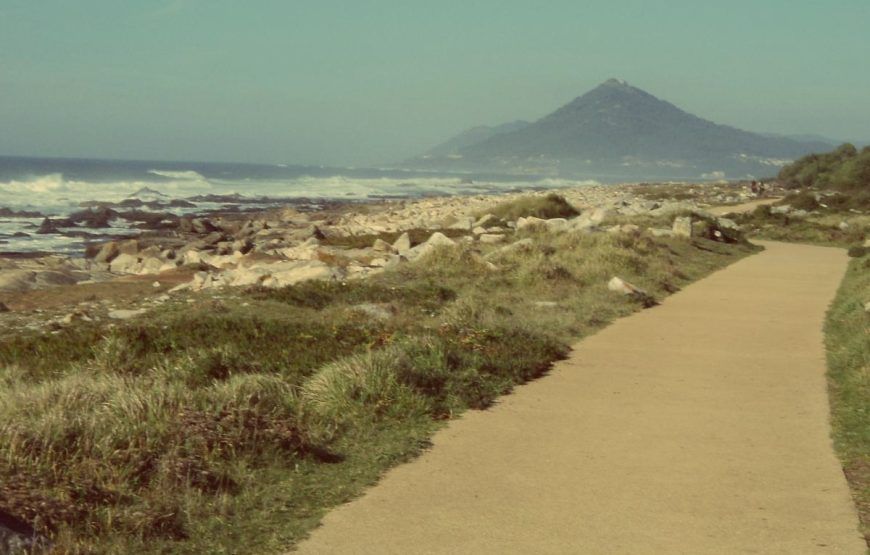
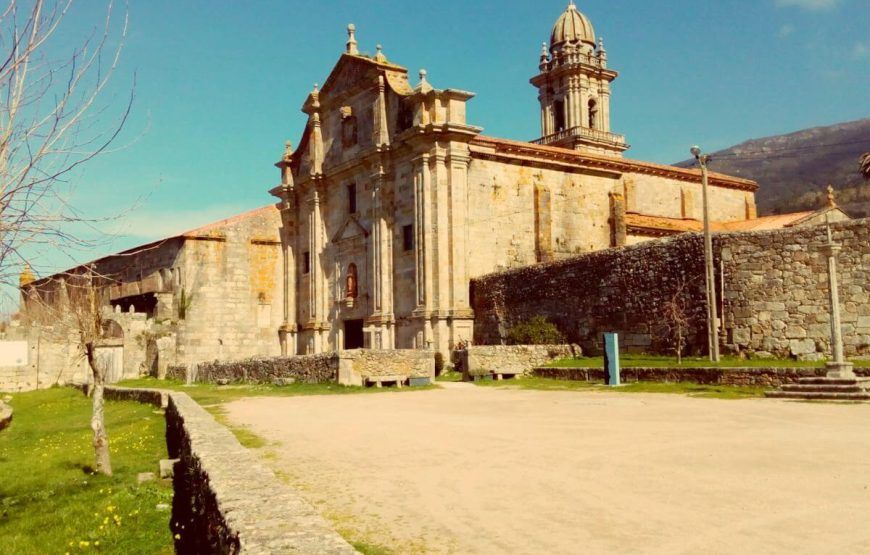
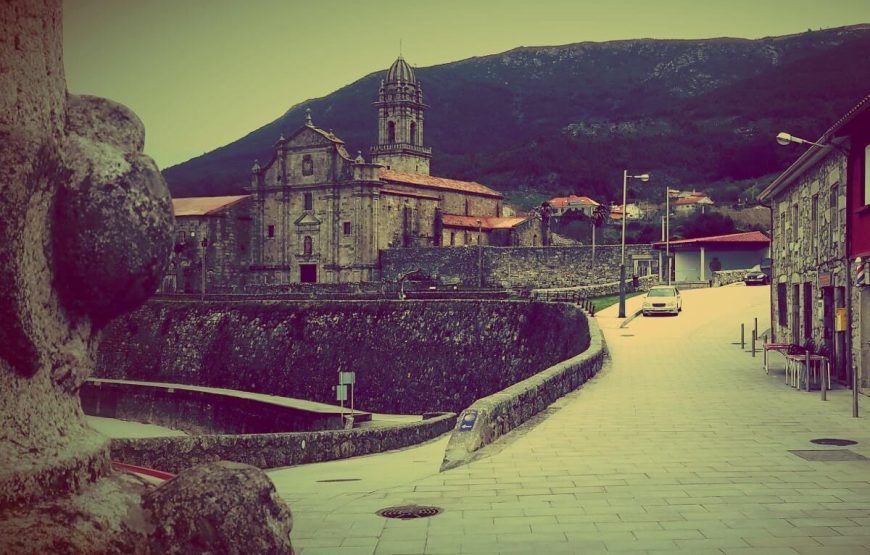
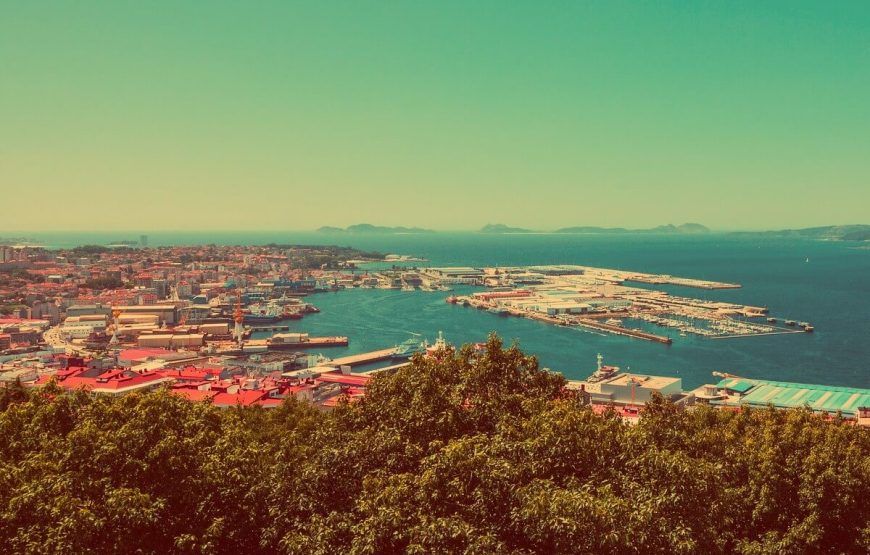
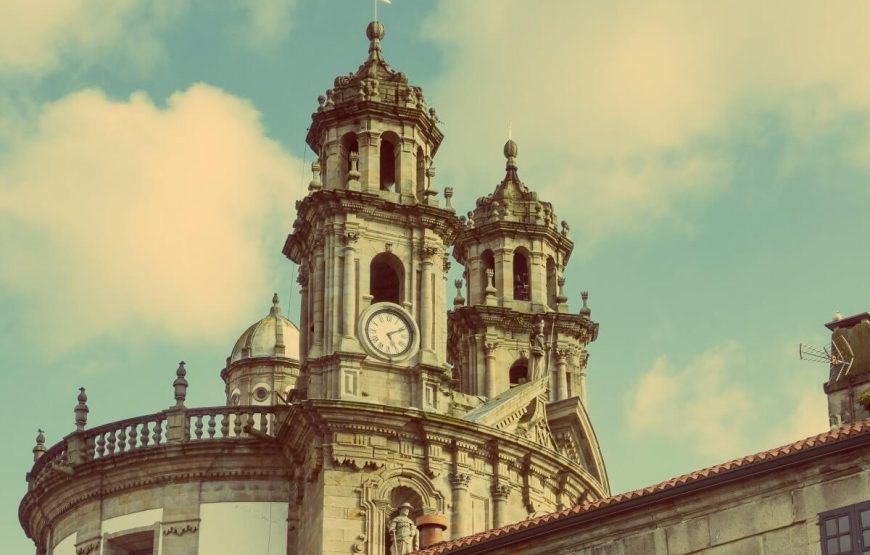
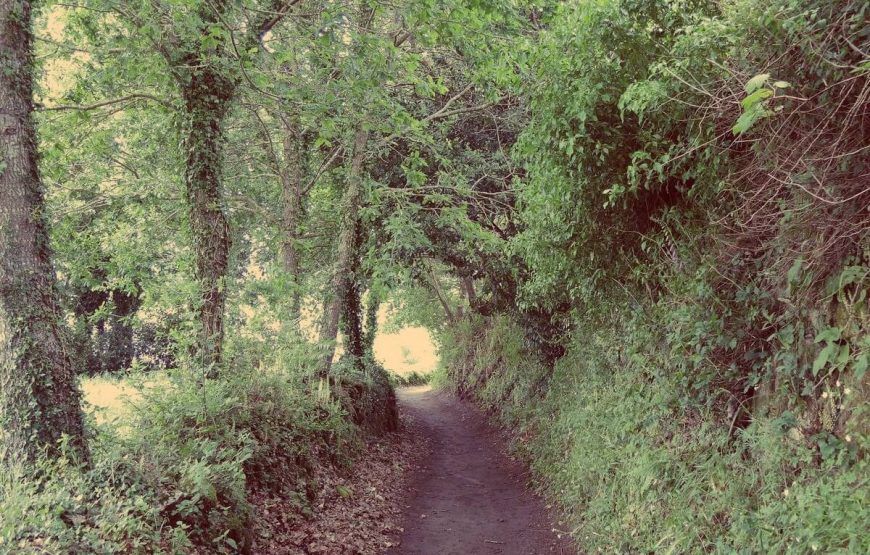
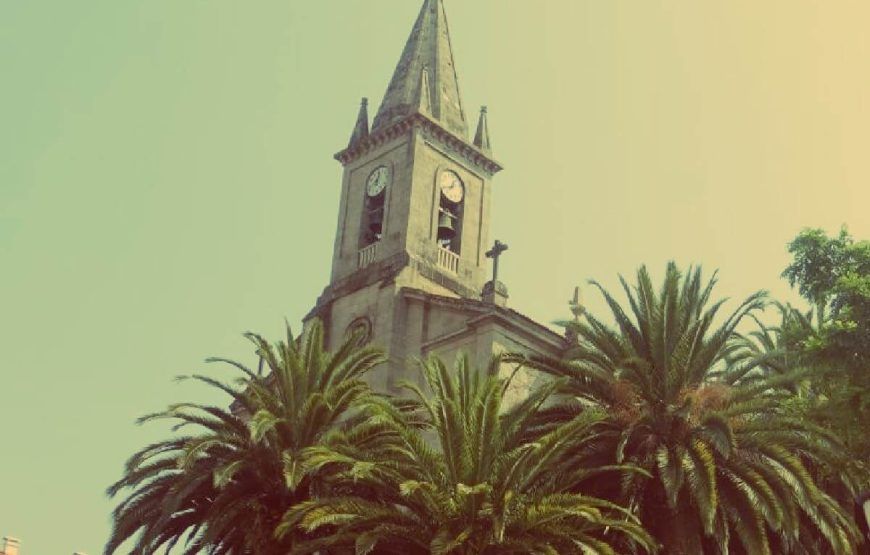
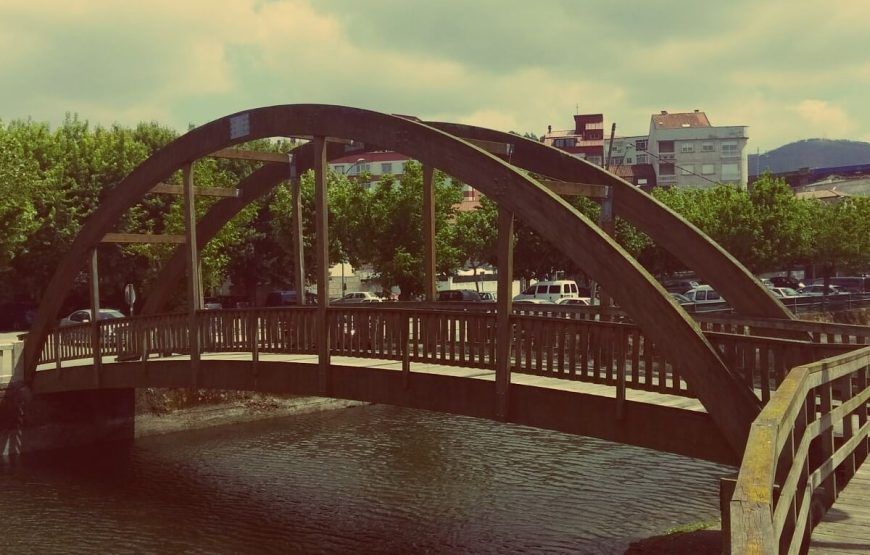
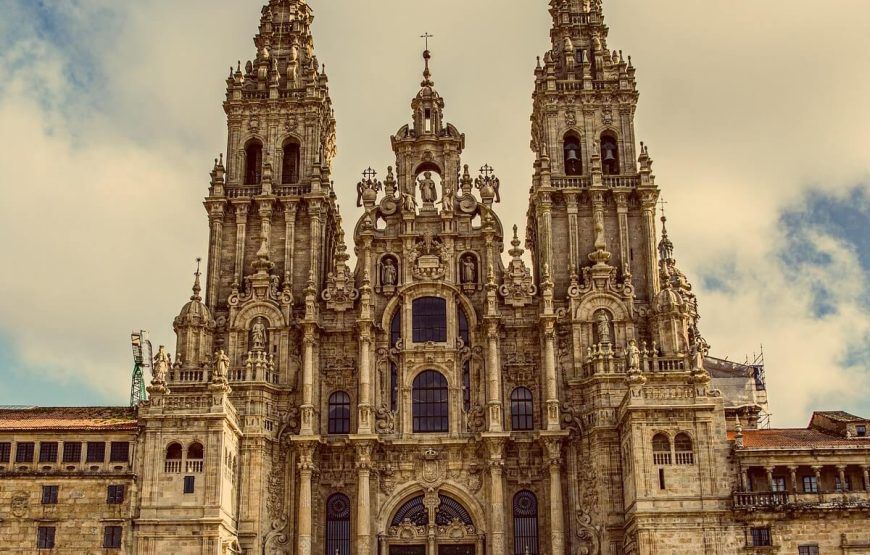
Overview
Walking the Camino Portuguese Coastal from Porto to Santiago is one of the most beautiful and accessible ways to experience the Camino de Santiago. Starting in Porto, a city with direct international flights and a rich cultural history, this 16-day journey along the Camino de Santiago Portuguese Coastal Route follows the Atlantic Ocean north into Galicia. Along the way you will enjoy golden beaches, fishing villages, vibrant towns, and two countries in one trip: Portugal and Spain. If you are walking the Camino Portugues for the first time and want everything you need to know about the coastal route, you can read more here.
This complete itinerary lets you walk the full Portuguese Coastal Camino, but we also offer several shorter alternatives. If you would like to cover only the final section, the Portuguese Coastal from Baiona to Santiago in eight days is a great choice. For those who prefer cycling, our Porto to Santiago e-bike trip in eight days follows the same route at a faster pace. Please note that pilgrimages by bicycle do not qualify for the Compostela certificate, so if receiving it is your goal you can read here how to obtain the Compostela.
If you are curious about other ways to walk the Camino, we also offer the Portuguese Central Route, from Porto to Tui in eight days. From Tui to Santiago you can then choose between the classic Portuguese Central Route or the Camino Espiritual variant, which includes a memorable section by boat. If you want to know more about the Espiritual, read our guide here. You might also wonder whether to walk inland or along the coast, find our overview here. For a broader introduction to this route, see our guide on what you need to know about the Camino Portuguese. And of course, if you prefer one of the classic routes, discover our options for the Camino Francés or the Camino del Norte.
Welcome to the vibrant city of Porto, the perfect place to begin your Camino Portuguese Coastal. Take time to wander through the historic center, a UNESCO World Heritage Site, and enjoy the lively atmosphere along the banks of the Douro River. Discover the narrow streets, colorful houses, and impressive landmarks such as the Clérigos Tower or the Dom Luís I Bridge. If you wish, you can also taste the city’s world-famous port wine. In the evening we recommend a good rest at your accommodation, so you are refreshed and ready for the start of your Camino adventure the following day.
In the morning a transfer takes you to Aldeia Nova, where your first walking stage of the Camino Portuguese Coastal begins. From here the route leads you north along the Atlantic, with sea views that will stay with you throughout the day. Enjoy the refreshing ocean breeze, the sandy paths, and the small coastal villages that give this stage its special charm. The walk ends in the lively town of Póvoa de Varzim, a place with deep fishing traditions and plenty of opportunities to relax by the waterfront.
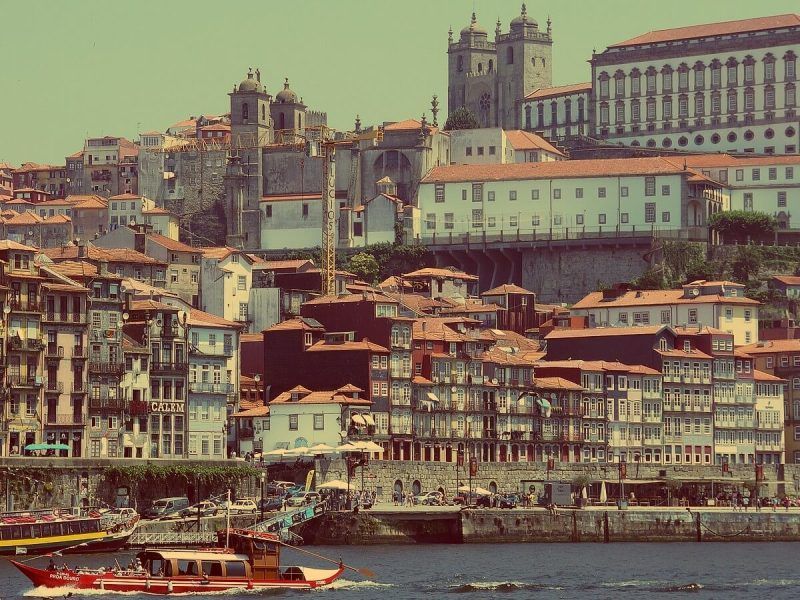
The Camino Portuguese Coastal continues north with another beautiful stretch along the Atlantic Ocean. The sound of the waves and the fresh sea breeze make this stage both relaxing and invigorating. Along the way you will pass through Apúlia, a charming Portuguese fishing village known for its broad sandy beach and traditional stone windmills. These mills once provided grain for the region and now stand as quiet witnesses of history, recalling tales of Don Quixote. Your stage ends in Esposende, where the river meets the ocean and you can enjoy the calm atmosphere of this town on the Camino de Santiago Portuguese Coastal Route.
Today the Camino Portuguese Coastal guides you from Esposende northward through a series of charming Portuguese villages. You pass Marinhas and then reach Castelo do Neiva, where the atmosphere of small-town life makes a pleasant pause along the way. Soon after, the route brings you to the Benedictine monastery of São Romão de Neiva, a remarkable piece of eleventh century architecture and one of the highlights of this section. The final stretch takes you to Viana do Castelo, a lively city on the Lima River. Here you can wander its historic center, admire elegant buildings, and, if timing allows, experience the colorful street market filled with clothes, crafts, and local products.
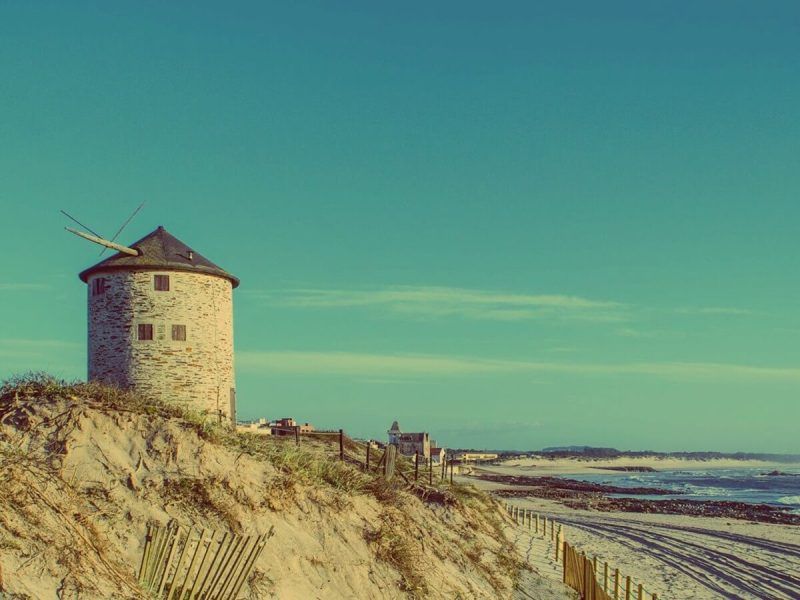
Just when you think you have seen enough of the Portuguese landscape, this stage shows you there is still more to enjoy. The Camino Portuguese Coastal leads you out of Viana do Castelo and into a stretch of countryside dotted with villages and views of the Atlantic. Take time to capture some photos of the scenery to share with family and friends back home. Along the way, you will find small Portuguese villages where you can stop for a meal or a cold beer and discover local flavors. The stage ends in Vila Praia de Âncora, a welcoming seaside town perfect for relaxing.
Today the Camino Portuguese Coastal unfolds in two distinct parts. The first section takes you through several villages along quiet roads with very little traffic. The second part offers more natural scenery with gentle hills, woodland, and small rural communities. It is not a difficult stage, but the distance can still feel demanding, so take your time, pause in local cafés, and enjoy the constant presence of the Atlantic Ocean. On reaching Caminha you will board the ferry across the Miño River, which marks the border between Portugal and Spain. From there it is a short walk of around four kilometers to reach A Guarda, your destination for the day.
Before leaving, take a moment to explore A Guarda. It has a beautiful historic centre with narrow streets and lively squares, and nearby Mount Santa Tecla offers sweeping views of the Atlantic together with the remains of an ancient Iberian village. From here the Camino Portuguese Coastal leads you north through eucalyptus forests, stretches of the Galician coast, and a few quiet roads. The walk is peaceful, with the ocean always close by. Your stage ends in Oia, a small village by the sea. Here you should visit the Monastery of Santa María de Oia, an impressive and centuries-old building that stands right beside the waves.
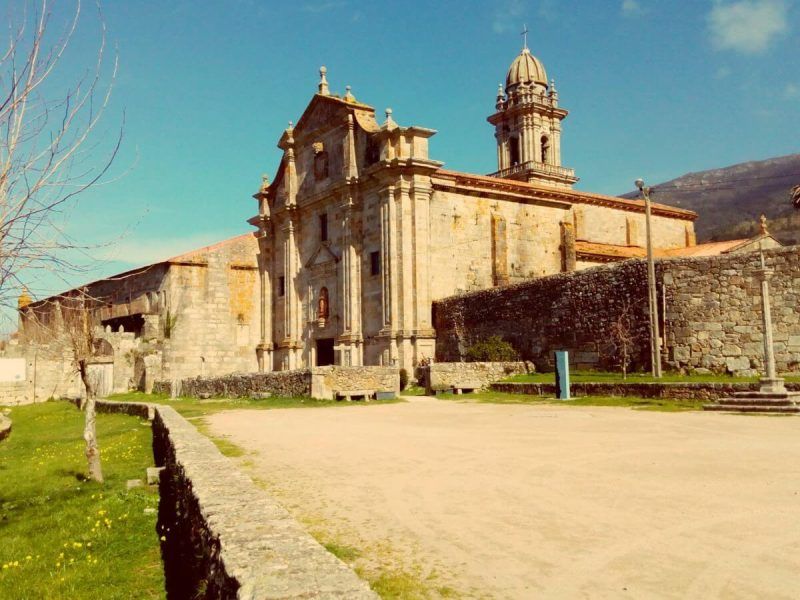
It is time to experience the Galician coast in all its glory! If someone were to bring you here with your eyes covered, you might believe you had arrived in Ireland, such is the beauty and rugged charm of the landscape. Along this part of the Camino Portuguese Coastal you will find plenty of restaurants and bars where you can pause and enjoy delicious Spanish food. The stage ends in Baiona, a historic seaside town where viewpoints scattered along the coast invite you to rest and take in some of the best views of the Atlantic Ocean, a perfect reward after your day of walking.
Another day to enjoy the Spanish landscape. Today you will once again walk through the green fields of Galicia, so have your camera ready for some memorable photos. Along the way, do not miss the chance to try the famous octopus tapa in a local bar, ideally with a cold beer, and take a break on the beautiful beach of Samil. Later you will arrive in Vigo, one of the most important cities in Galicia, full of shops, cafés, and restaurants. From here you can admire the Ría de Vigo, part of the famous Rías Baixas. Out in the Atlantic you will see the Cíes Islands, a protected nature reserve that remains wild and uninhabited.
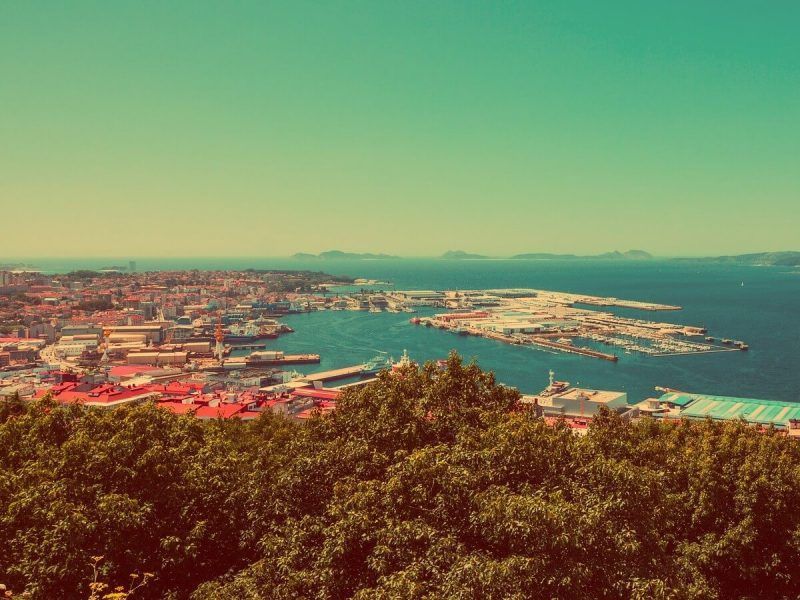
Leaving Vigo, you will notice the industrial character of the city, with shipyards and factories that reflect its importance within Galicia. Once outside the urban area, the Camino Portuguese Coastal takes you past beaches and through small Galician villages, where the pace of life slows and the sea remains close by. A short stretch follows a road, but the surrounding landscape makes the walk worthwhile. The stage is not marked by major landmarks, yet it offers a pleasant balance of coastline and countryside, with wide views of the Galician coast to keep you company as you approach the town of Redondela.
This stage is one of the most beautiful parts of the Galician coast. You will cross natural paths surrounded by greenery and enjoy the outdoors as the trail takes you up and down over small hills. Along the way you will pass bridges built above saltwater inlets, where the changing tide creates wonderful reflections. A special highlight of the day is the ascent along an ancient Roman road, where you can almost imagine the footsteps of those who walked here centuries ago. The scenery, the history, and the peaceful rhythm of the landscape make this stage unforgettable, and reaching Pontevedra will be a rewarding finish to a remarkable day.
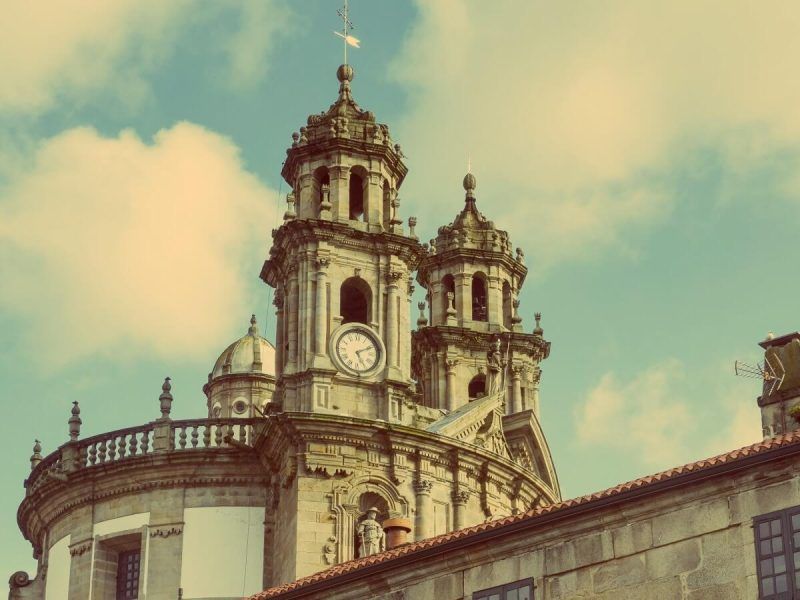
Today is an easy and very beautiful stage of the Camino Portuguese Coastal. The path leads you through wooded areas and vineyards that are part of the famous Rías Baixas wine region, and tasting a glass of this crisp white wine is highly recommended. Along the way you will discover charming Galician villages, cross small rail tracks, and see traditional stone granaries, known as hórreos, which are typical of the region. The atmosphere is calm and rural, with plenty of opportunities to pause and enjoy the surroundings. When you arrive in Caldas de Reis, be sure to soak in one of the thermal springs, long believed to hold legendary healing powers.
You are now very close to the end of your Camino Portuguese Coastal Route, and today’s stage is one of the highlights of the Galician section. The path takes you through peaceful countryside and along riversides, passing through villages filled with history. In Pontecesures you can see Roman and medieval remains, including old bridges and churches that tell the story of centuries of pilgrimage. Your destination is Padrón, a town famous in Camino history as the place where the boat carrying the body of Saint James is said to have arrived. Take your time to enjoy the day because your Camino is almost finished!
This is the last stage of the Camino Portuguese Coastal. You will walk along paved paths, passing through villages filled with churches and chapels that remind you of the region’s deep history. The stage is clearly divided into two parts: the first is uphill, leading to Milladoiro, the highest point of today’s walk, and the second is downhill all the way to Santiago. From Agro dos Monteiros you will finally see the towers of the cathedral rising in the distance, with only seven kilometers left. Enjoy these last kilometers, and take a well-deserved rest in the Plaza do Obradoiro while you stand speechless before the cathedral!
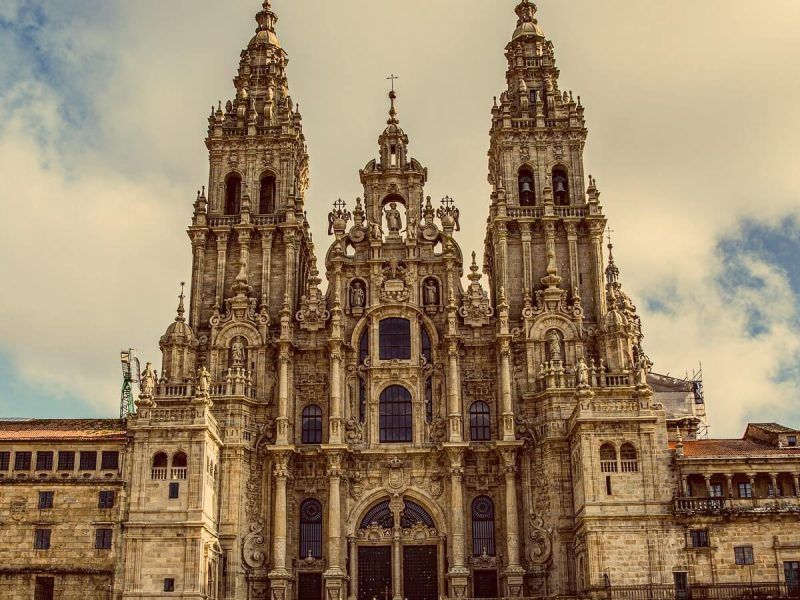
After completing your Camino Portuguese Coastal, take an extra day to enjoy Santiago de Compostela. Wander through the winding streets of the historic center, a UNESCO World Heritage Site, and spend time in the Plaza do Obradoiro, where the cathedral continues to inspire pilgrims from all over the world. You may wish to attend the pilgrim’s mass, explore the museums, or simply relax in one of the lively cafés. This day gives you the chance to fully absorb the spirit of the Camino and celebrate the completion of your journey at your own pace.
It is time to say goodbye to your adventure. A transfer will take you to the airport so you can return home with your Compostela certificate and lasting memories. The Camino de Santiago is not only a spiritual and cultural journey but also the beginning of many more walking adventures that await you.
If you prefer a shorter itinerary, you can skip the extra day in Santiago. In addition, some of the longer stages can be divided into two easier walks:
Beyond Galicia you can discover the dramatic peaks of the Picos de Europa, the sunny trails of Mallorca, or explore the Camí de Cavalls in Menorca and the Fishermen’s Trail in Portugal. For something different, head to the Canary Islands and hike across the volcanic landscapes of Lanzarote and Fuerteventura, or follow the ancient Via Francigena through Italy. Each route offers unique scenery, stories, and spirit, ready to inspire your next journey!
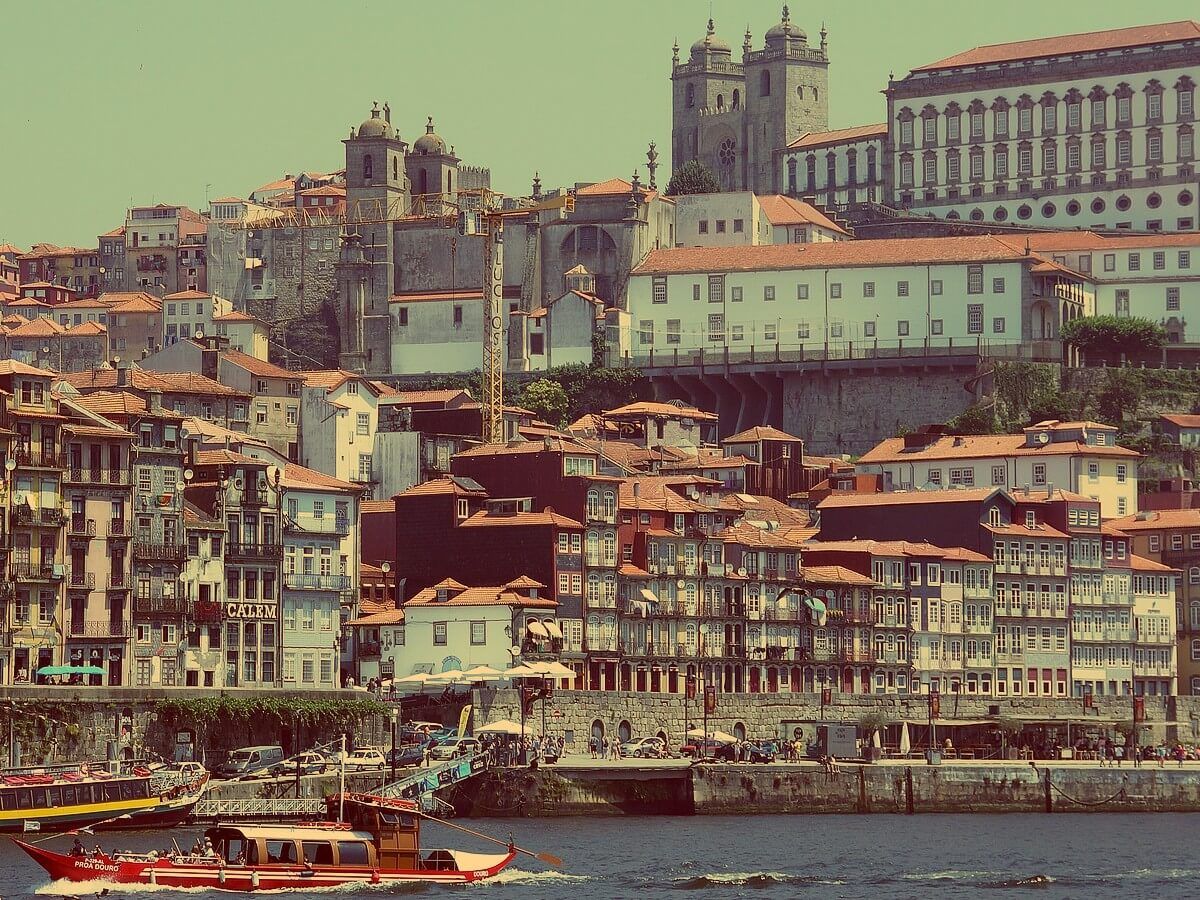
Welcome to the vibrant city of Porto, the perfect place to begin your Camino Portuguese Coastal. Take time to wander through the historic center, a UNESCO World Heritage Site, and enjoy the lively atmosphere along the banks of the Douro River. Discover the narrow streets, colorful houses, and impressive landmarks such as the Clérigos Tower or the Dom Luís I Bridge. If you wish, you can also taste the city’s world-famous port wine. In the evening we recommend a good rest at your accommodation, so you are refreshed and ready for the start of your Camino adventure the following day.
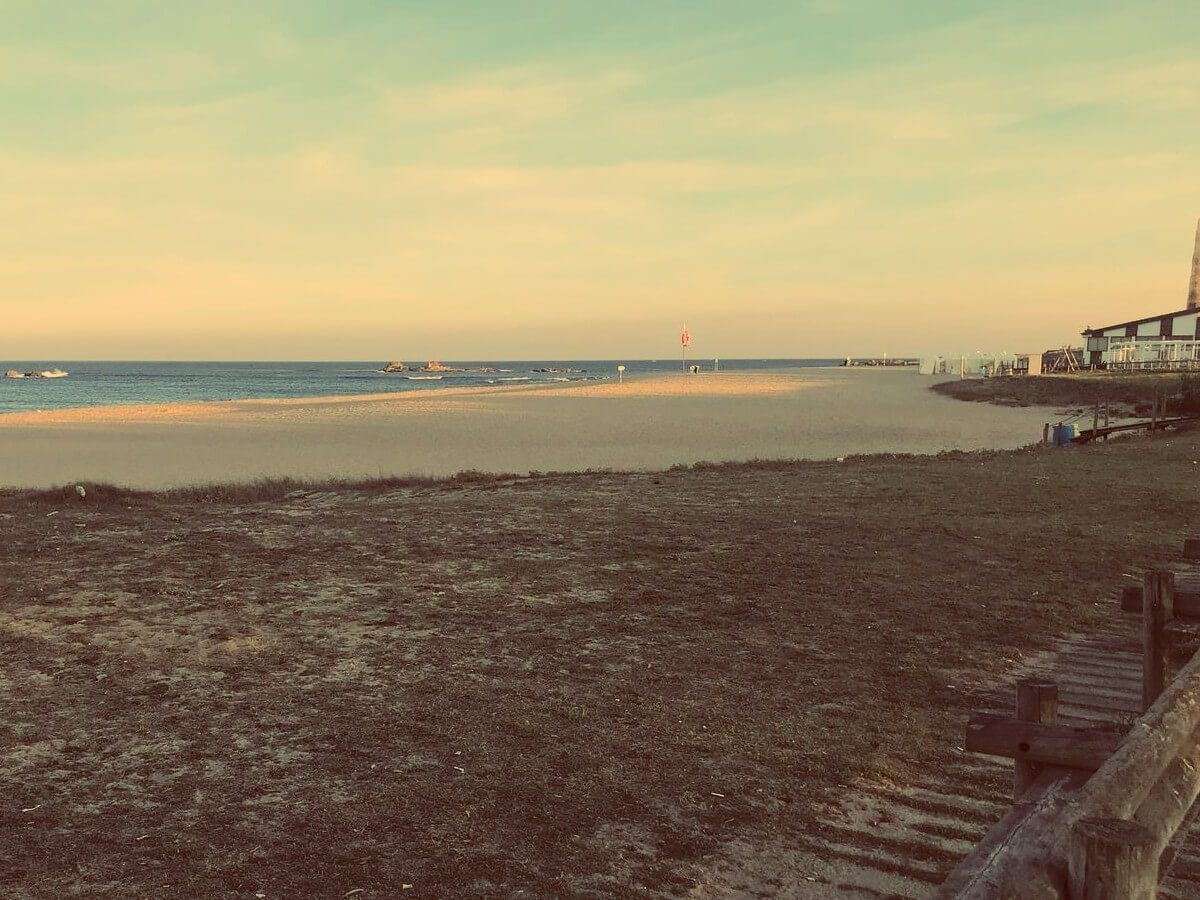
In the morning a transfer takes you to Aldeia Nova, where your first walking stage of the Camino Portuguese Coastal begins. From here the route leads you north along the Atlantic, with sea views that will stay with you throughout the day. Enjoy the refreshing ocean breeze, the sandy paths, and the small coastal villages that give this stage its special charm. The walk ends in the lively town of Póvoa de Varzim, a place with deep fishing traditions and plenty of opportunities to relax by the waterfront.
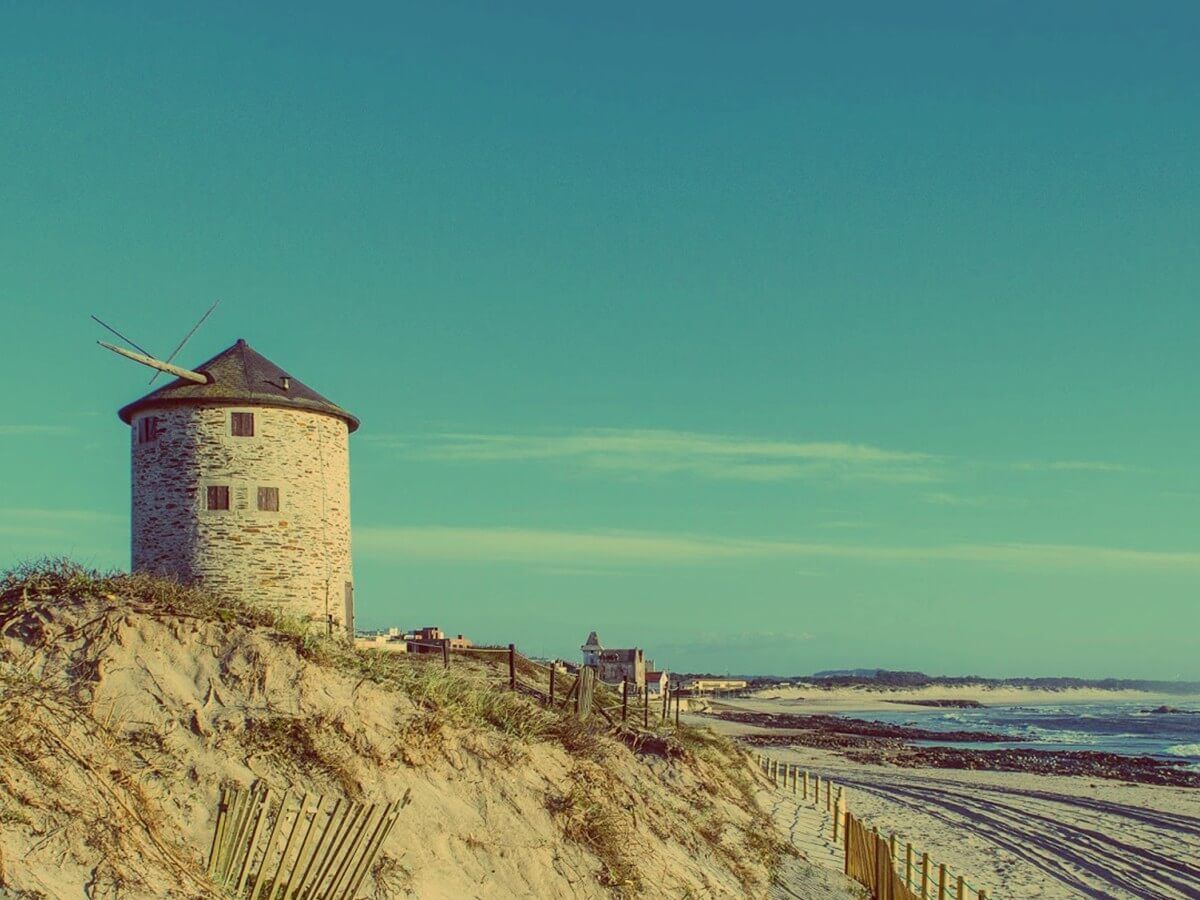
The Camino Portuguese Coastal continues north with another beautiful stretch along the Atlantic Ocean. The sound of the waves and the fresh sea breeze make this stage both relaxing and invigorating. Along the way you will pass through Apúlia, a charming Portuguese fishing village known for its broad sandy beach and traditional stone windmills. These mills once provided grain for the region and now stand as quiet witnesses of history, recalling tales of Don Quixote. Your stage ends in Esposende, where the river meets the ocean and you can enjoy the calm atmosphere of this town on the Camino de Santiago Portuguese Coastal Route.
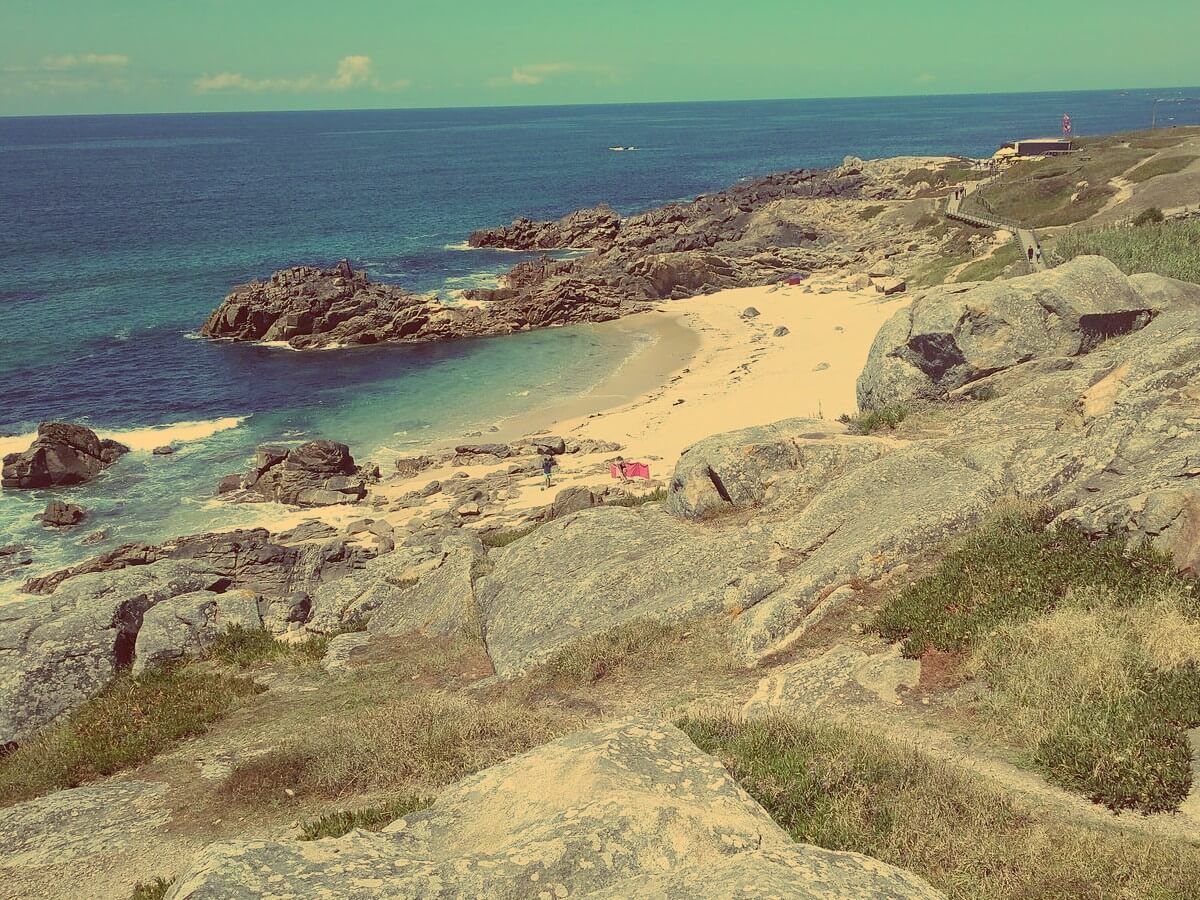
Today the Camino Portuguese Coastal guides you from Esposende northward through a series of charming Portuguese villages. You pass Marinhas and then reach Castelo do Neiva, where the atmosphere of small-town life makes a pleasant pause along the way. Soon after, the route brings you to the Benedictine monastery of São Romão de Neiva, a remarkable piece of eleventh century architecture and one of the highlights of this section. The final stretch takes you to Viana do Castelo, a lively city on the Lima River. Here you can wander its historic center, admire elegant buildings, and, if timing allows, experience the colorful street market filled with clothes, crafts, and local products.
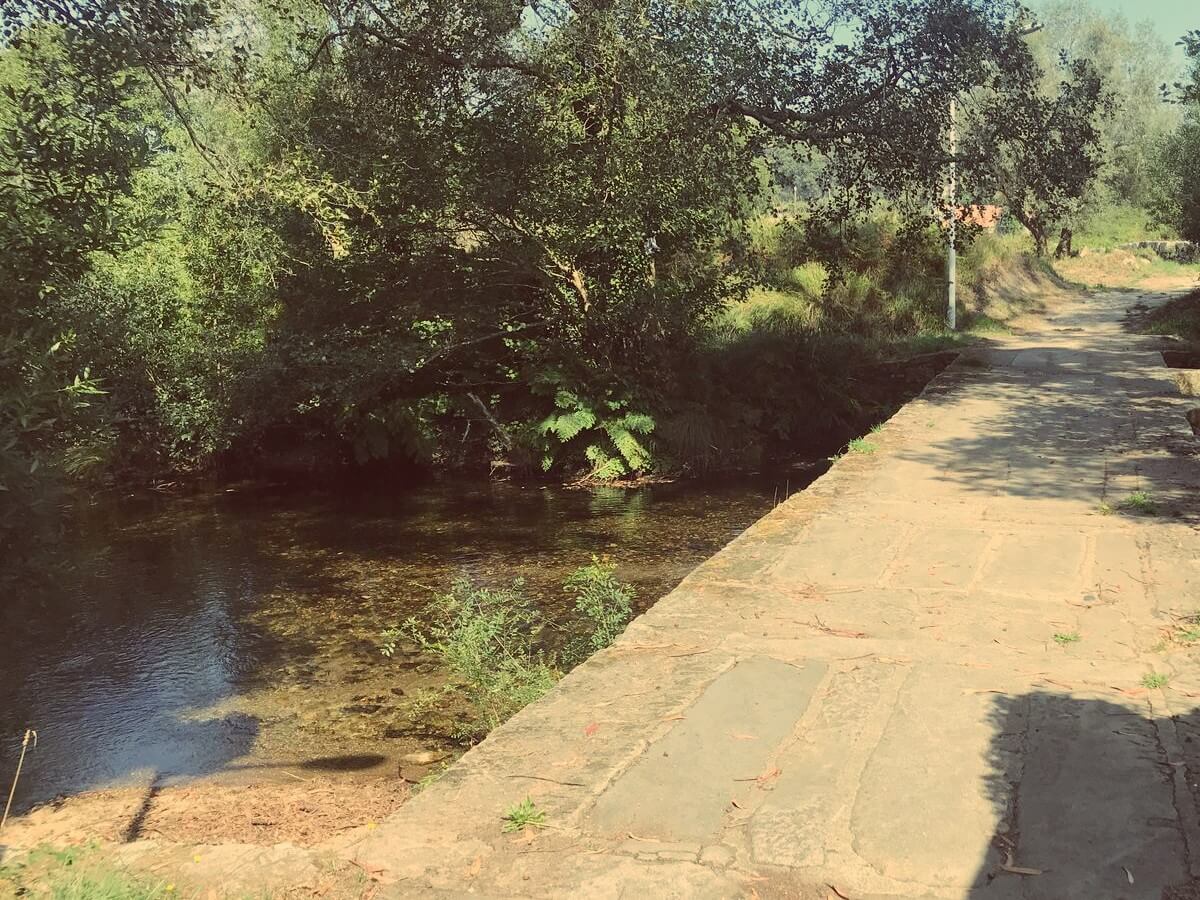
Just when you think you have seen enough of the Portuguese landscape, this stage shows you there is still more to enjoy. The Camino Portuguese Coastal leads you out of Viana do Castelo and into a stretch of countryside dotted with villages and views of the Atlantic. Take time to capture some photos of the scenery to share with family and friends back home. Along the way, you will find small Portuguese villages where you can stop for a meal or a cold beer and discover local flavors. The stage ends in Vila Praia de Âncora, a welcoming seaside town perfect for relaxing.
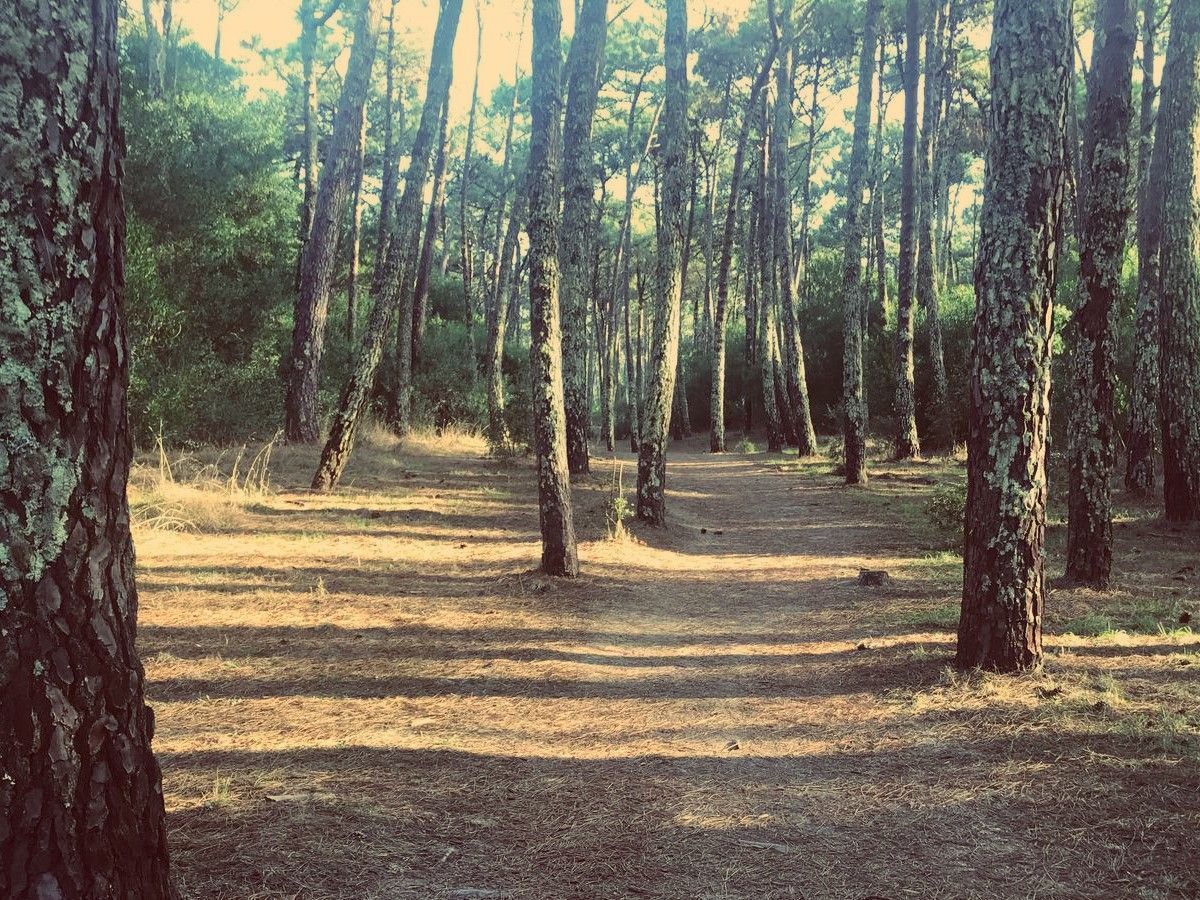
Today the Camino Portuguese Coastal unfolds in two distinct parts. The first section takes you through several villages along quiet roads with very little traffic. The second part offers more natural scenery with gentle hills, woodland, and small rural communities. It is not a difficult stage, but the distance can still feel demanding, so take your time, pause in local cafés, and enjoy the constant presence of the Atlantic Ocean. On reaching Caminha you will board the ferry across the Miño River, which marks the border between Portugal and Spain. From there it is a short walk of around four kilometers to reach A Guarda, your destination for the day.
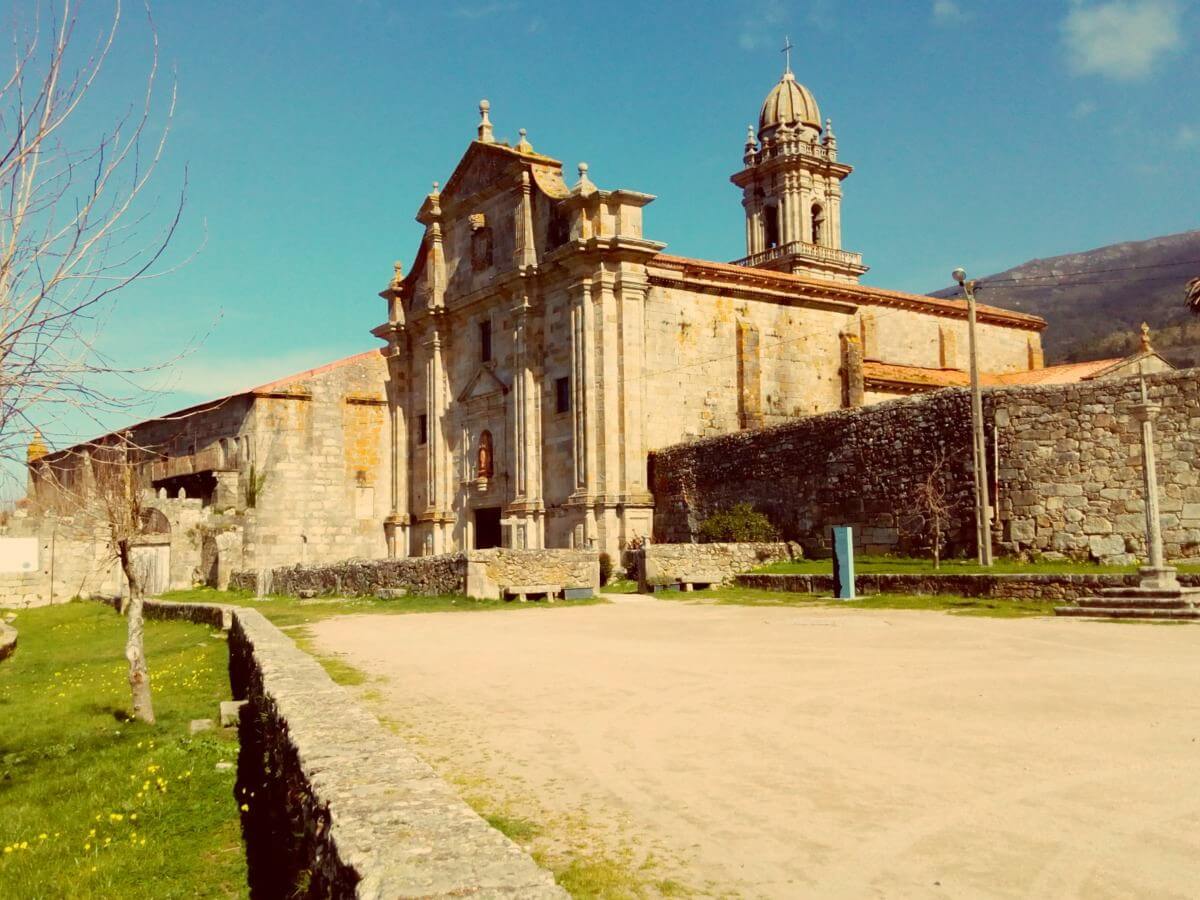
Before leaving, take a moment to explore A Guarda. It has a beautiful historic centre with narrow streets and lively squares, and nearby Mount Santa Tecla offers sweeping views of the Atlantic together with the remains of an ancient Iberian village. From here the Camino Portuguese Coastal leads you north through eucalyptus forests, stretches of the Galician coast, and a few quiet roads. The walk is peaceful, with the ocean always close by. Your stage ends in Oia, a small village by the sea. Here you should visit the Monastery of Santa María de Oia, an impressive and centuries-old building that stands right beside the waves.
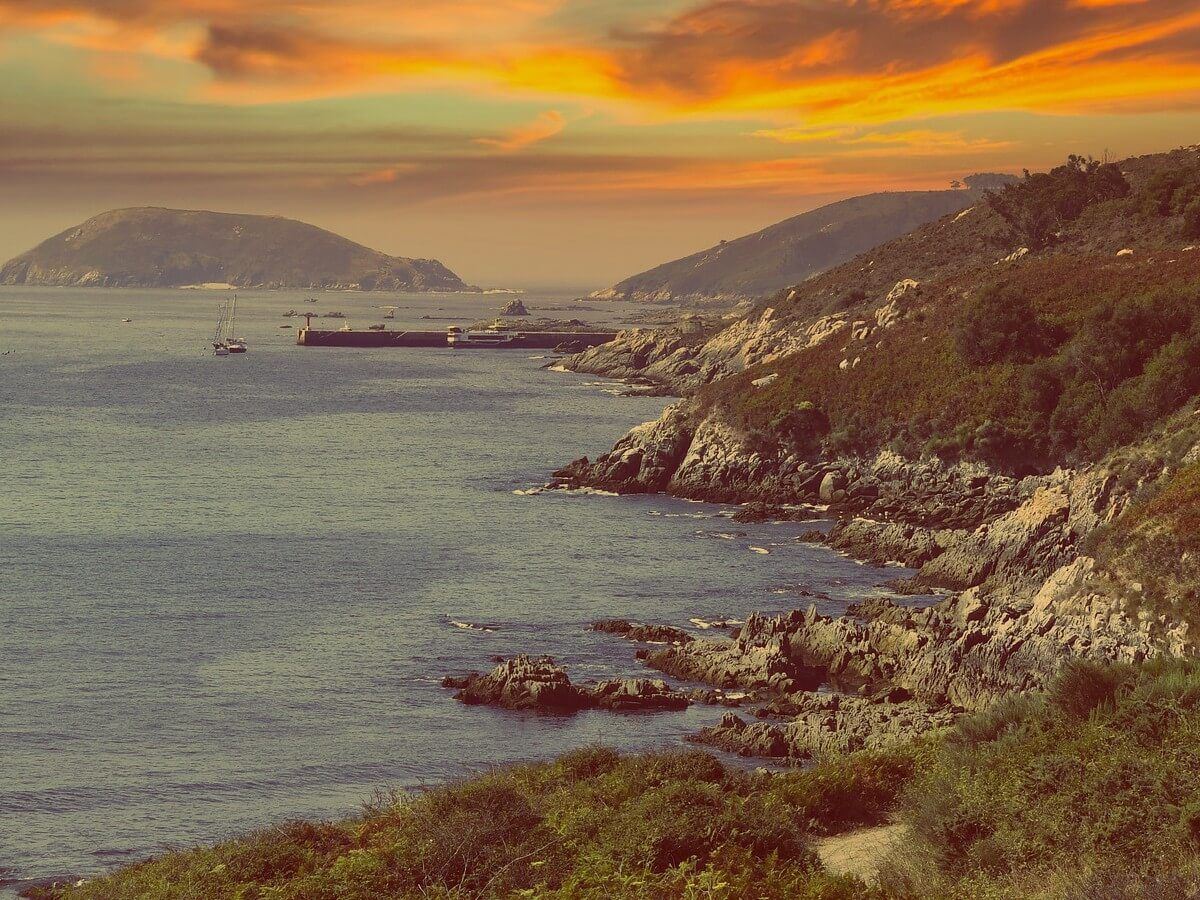
It is time to experience the Galician coast in all its glory! If someone were to bring you here with your eyes covered, you might believe you had arrived in Ireland, such is the beauty and rugged charm of the landscape. Along this part of the Camino Portuguese Coastal you will find plenty of restaurants and bars where you can pause and enjoy delicious Spanish food. The stage ends in Baiona, a historic seaside town where viewpoints scattered along the coast invite you to rest and take in some of the best views of the Atlantic Ocean, a perfect reward after your day of walking.
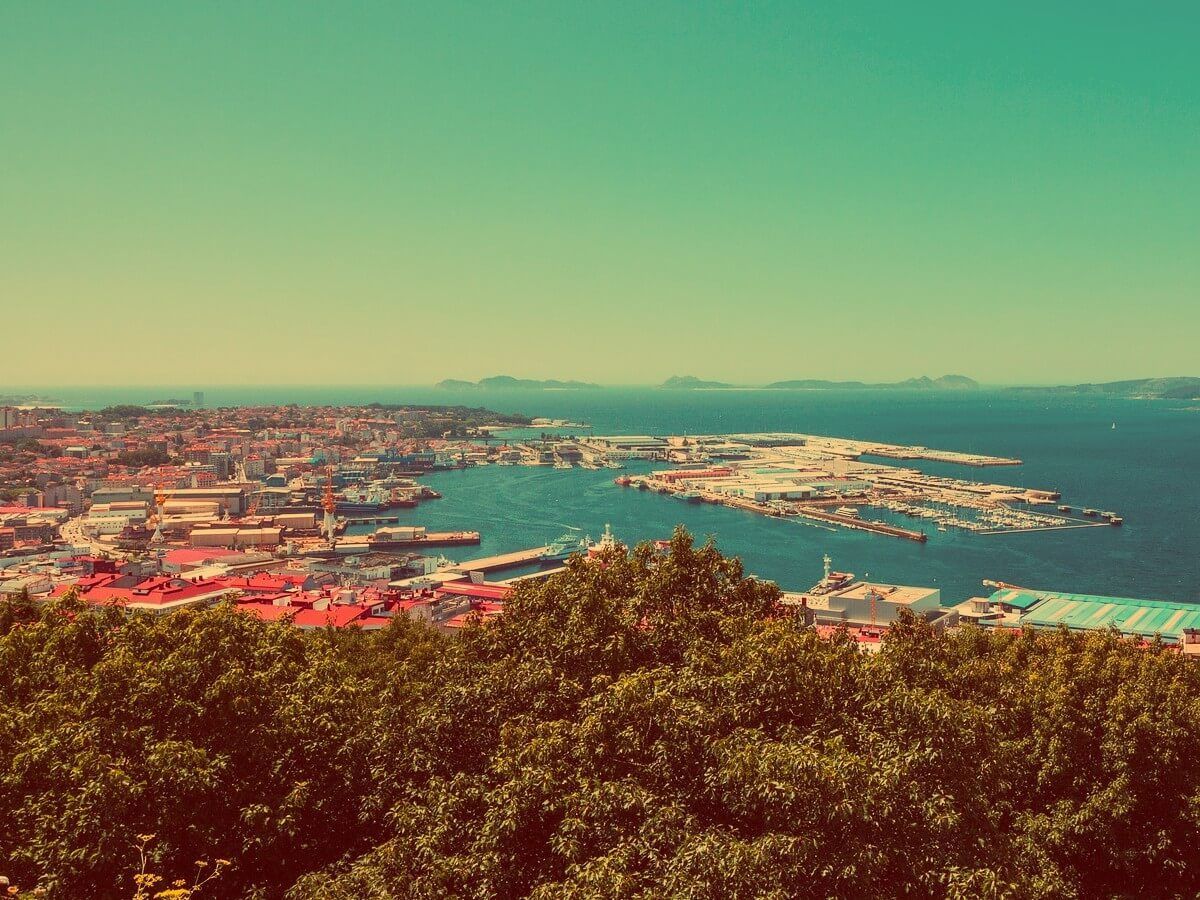
Another day to enjoy the Spanish landscape. Today you will once again walk through the green fields of Galicia, so have your camera ready for some memorable photos. Along the way, do not miss the chance to try the famous octopus tapa in a local bar, ideally with a cold beer, and take a break on the beautiful beach of Samil. Later you will arrive in Vigo, one of the most important cities in Galicia, full of shops, cafés, and restaurants. From here you can admire the Ría de Vigo, part of the famous Rías Baixas. Out in the Atlantic you will see the Cíes Islands, a protected nature reserve that remains wild and uninhabited.
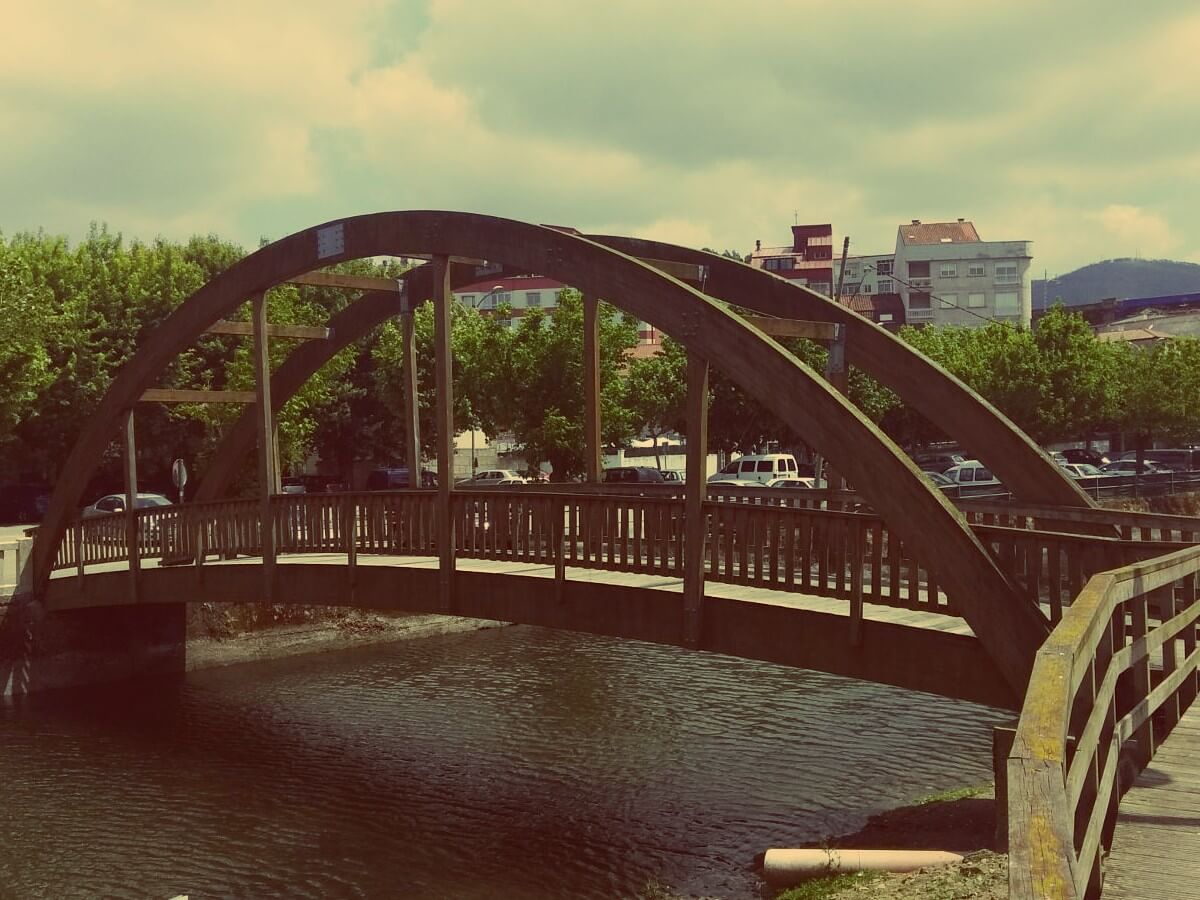
Leaving Vigo, you will notice the industrial character of the city, with shipyards and factories that reflect its importance within Galicia. Once outside the urban area, the Camino Portuguese Coastal takes you past beaches and through small Galician villages, where the pace of life slows and the sea remains close by. A short stretch follows a road, but the surrounding landscape makes the walk worthwhile. The stage is not marked by major landmarks, yet it offers a pleasant balance of coastline and countryside, with wide views of the Galician coast to keep you company as you approach the town of Redondela.
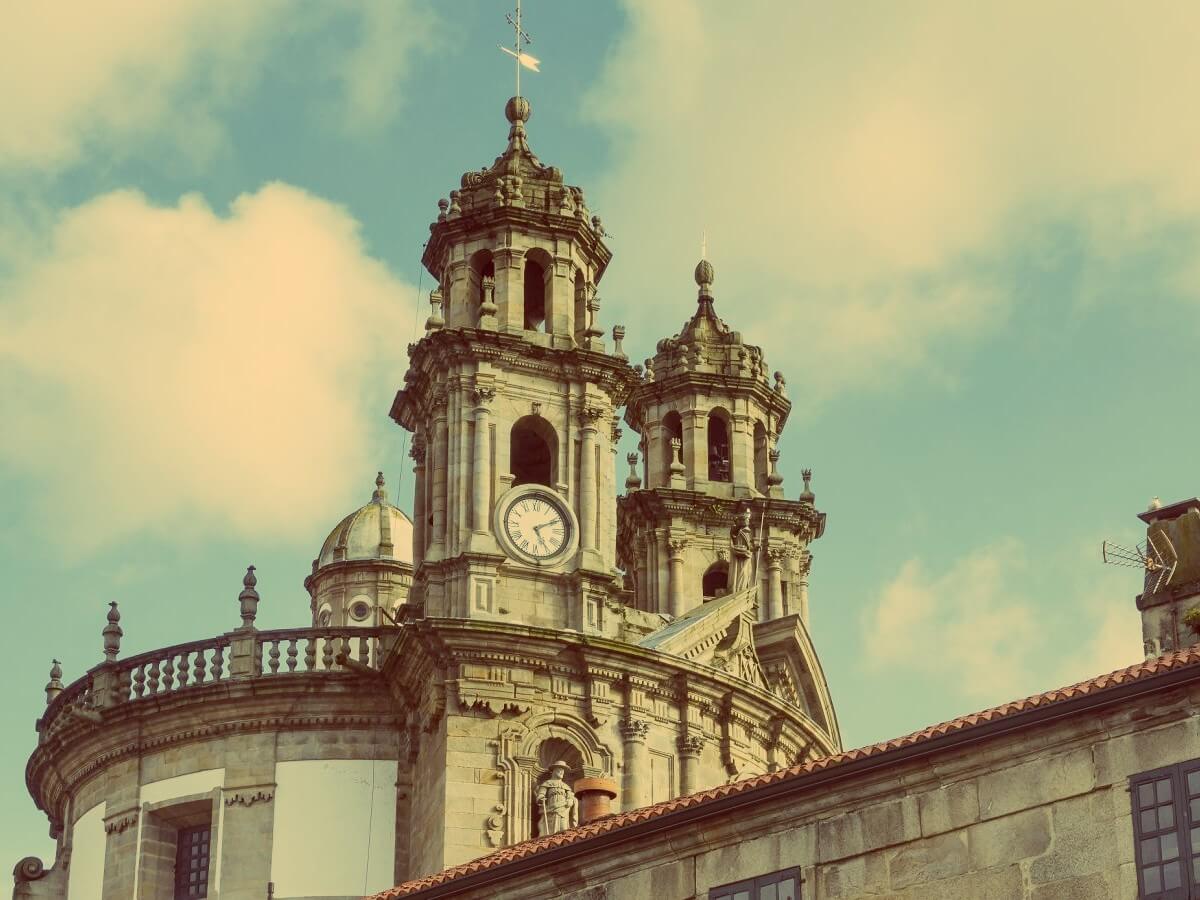
This stage is one of the most beautiful parts of the Galician coast. You will cross natural paths surrounded by greenery and enjoy the outdoors as the trail takes you up and down over small hills. Along the way you will pass bridges built above saltwater inlets, where the changing tide creates wonderful reflections. A special highlight of the day is the ascent along an ancient Roman road, where you can almost imagine the footsteps of those who walked here centuries ago. The scenery, the history, and the peaceful rhythm of the landscape make this stage unforgettable, and reaching Pontevedra will be a rewarding finish to a remarkable day.
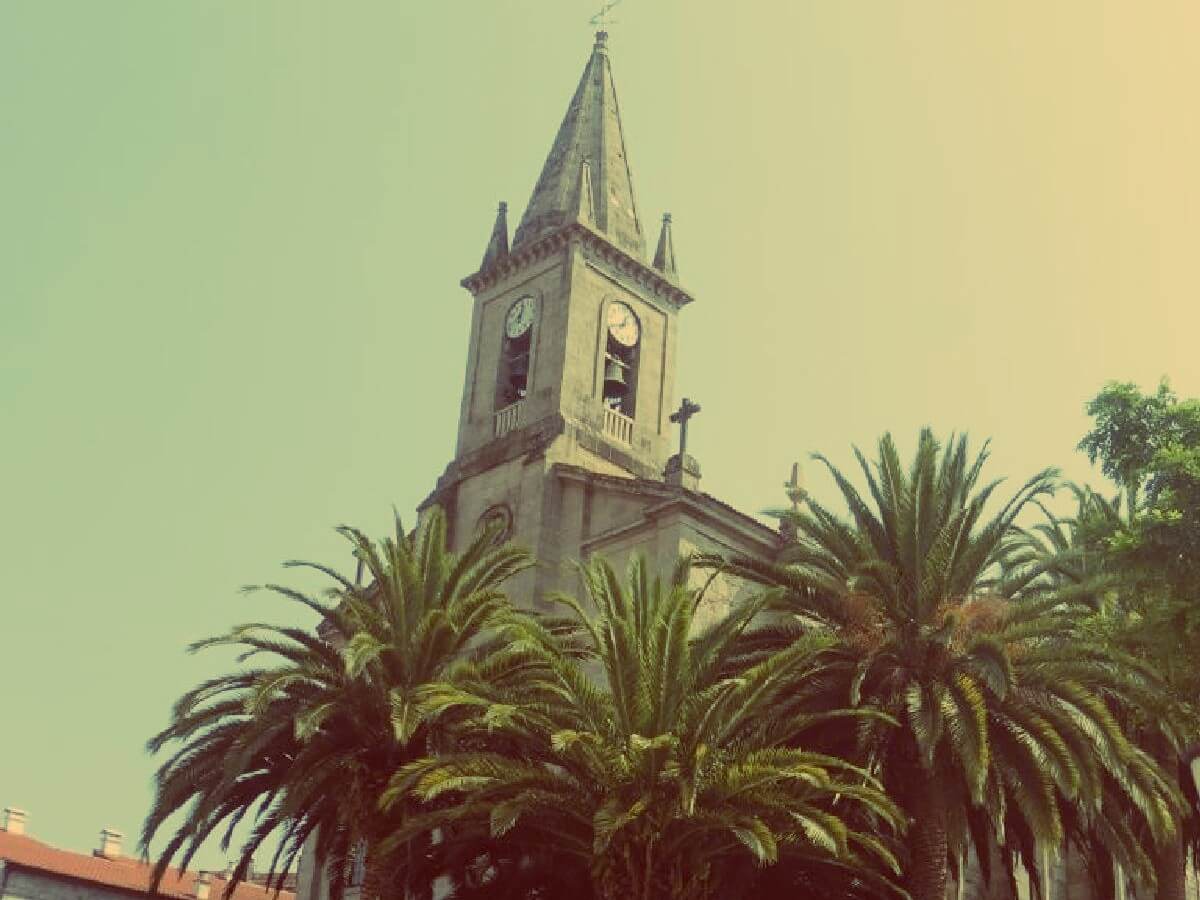
Today is an easy and very beautiful stage of the Camino Portuguese Coastal. The path leads you through wooded areas and vineyards that are part of the famous Rías Baixas wine region, and tasting a glass of this crisp white wine is highly recommended. Along the way you will discover charming Galician villages, cross small rail tracks, and see traditional stone granaries, known as hórreos, which are typical of the region. The atmosphere is calm and rural, with plenty of opportunities to pause and enjoy the surroundings. When you arrive in Caldas de Reis, be sure to soak in one of the thermal springs, long believed to hold legendary healing powers.
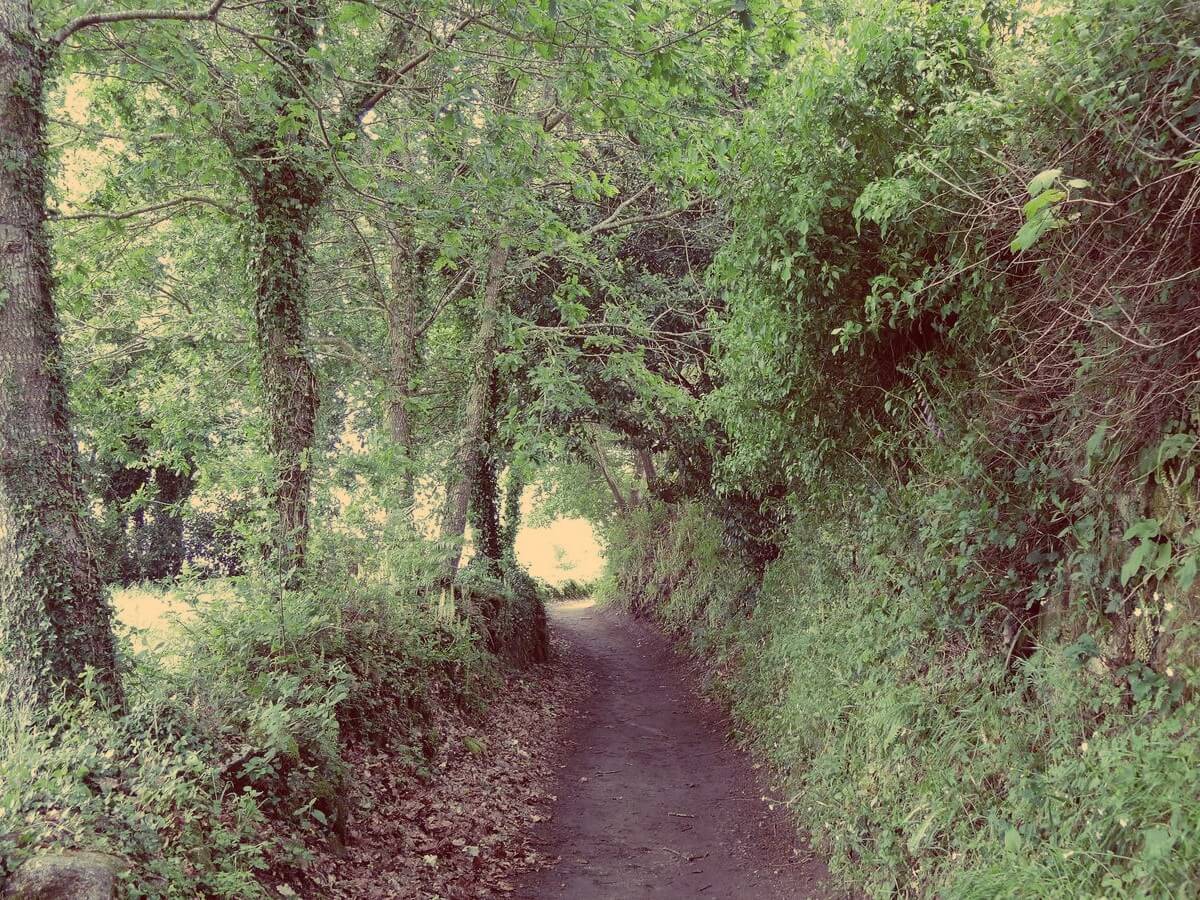
You are now very close to the end of your Camino Portuguese Coastal Route, and today’s stage is one of the highlights of the Galician section. The path takes you through peaceful countryside and along riversides, passing through villages filled with history. In Pontecesures you can see Roman and medieval remains, including old bridges and churches that tell the story of centuries of pilgrimage. Your destination is Padrón, a town famous in Camino history as the place where the boat carrying the body of Saint James is said to have arrived. Take your time to enjoy the day because your Camino is almost finished!

This is the last stage of the Camino Portuguese Coastal. You will walk along paved paths, passing through villages filled with churches and chapels that remind you of the region’s deep history. The stage is clearly divided into two parts: the first is uphill, leading to Milladoiro, the highest point of today’s walk, and the second is downhill all the way to Santiago. From Agro dos Monteiros you will finally see the towers of the cathedral rising in the distance, with only seven kilometers left. Enjoy these last kilometers, and take a well-deserved rest in the Plaza do Obradoiro while you stand speechless before the cathedral!
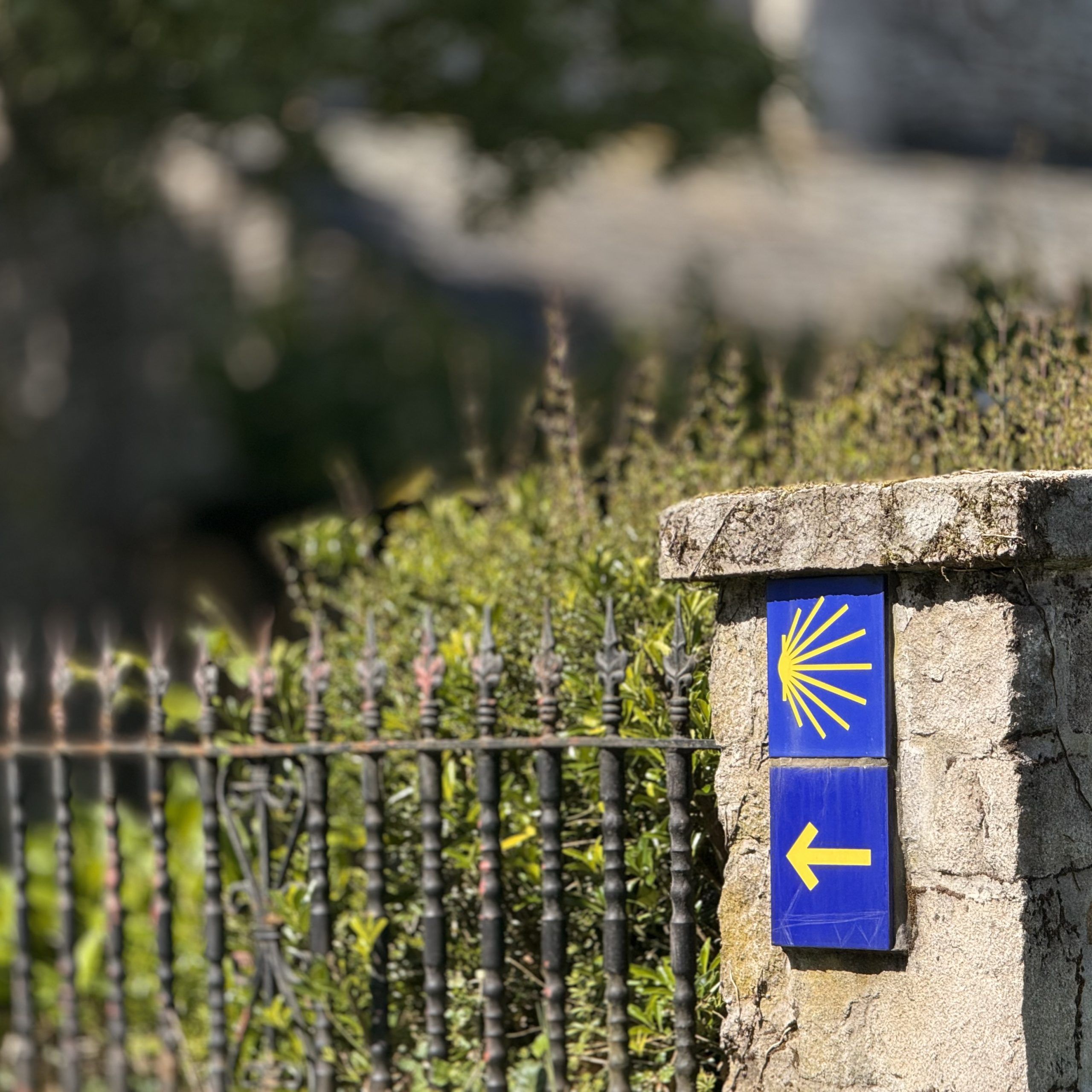
After completing your Camino Portuguese Coastal, take an extra day to enjoy Santiago de Compostela. Wander through the winding streets of the historic center, a UNESCO World Heritage Site, and spend time in the Plaza do Obradoiro, where the cathedral continues to inspire pilgrims from all over the world. You may wish to attend the pilgrim’s mass, explore the museums, or simply relax in one of the lively cafés. This day gives you the chance to fully absorb the spirit of the Camino and celebrate the completion of your journey at your own pace.
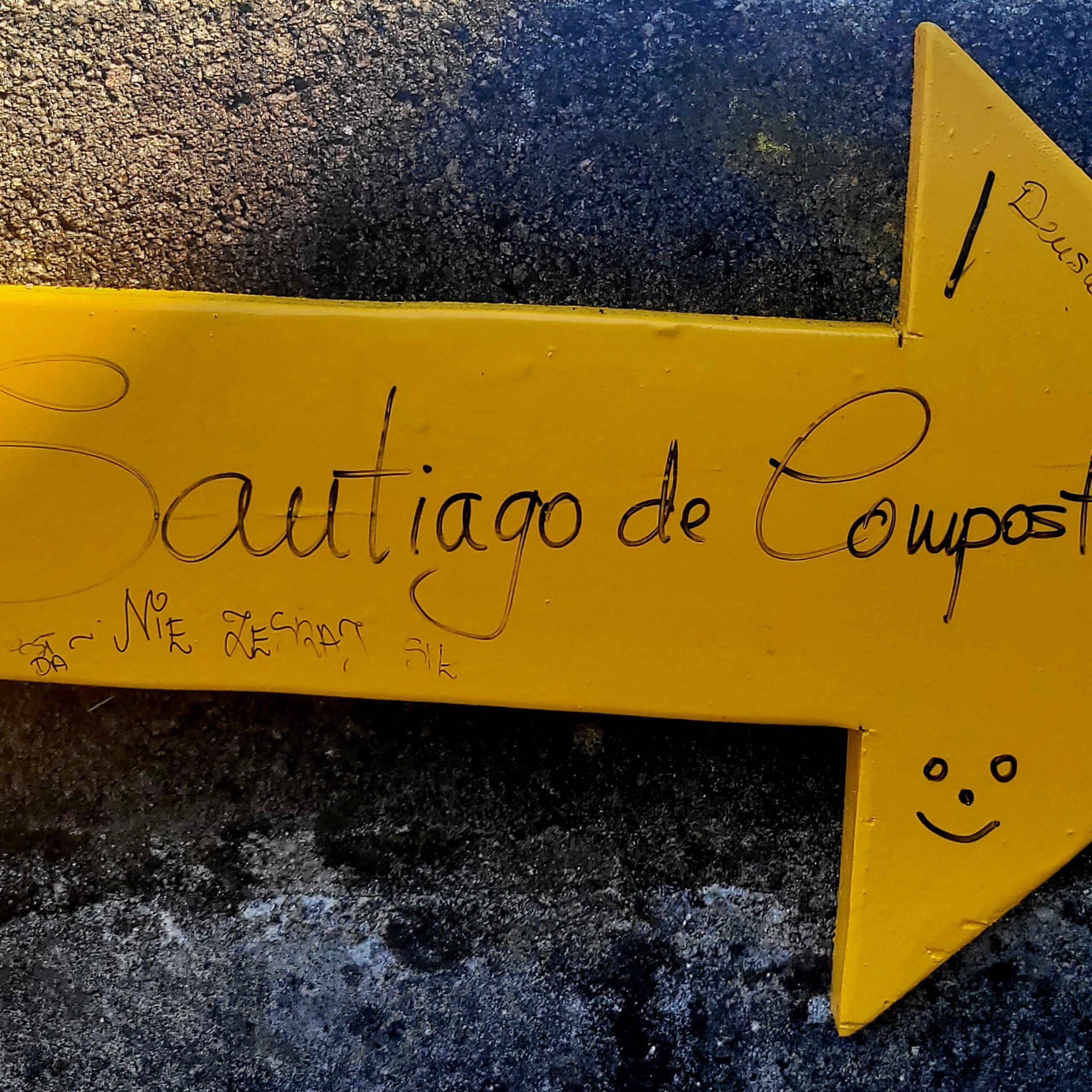
It is time to say goodbye to your adventure. A transfer will take you to the airport so you can return home with your Compostela certificate and lasting memories. The Camino de Santiago is not only a spiritual and cultural journey but also the beginning of many more walking adventures that await you.
If you prefer a shorter itinerary, you can skip the extra day in Santiago. In addition, some of the longer stages can be divided into two easier walks:
Beyond Galicia you can discover the dramatic peaks of the Picos de Europa, the sunny trails of Mallorca, or explore the Camí de Cavalls in Menorca and the Fishermen’s Trail in Portugal. For something different, head to the Canary Islands and hike across the volcanic landscapes of Lanzarote and Fuerteventura, or follow the ancient Via Francigena through Italy. Each route offers unique scenery, stories, and spirit, ready to inspire your next journey!
The Camino Portuguese Coastal from Porto to Santiago is moderately challenging. You will walk around 260 km over 14 walking stages, mostly along coastal paths, quiet roads, and forest tracks. Some days involve gentle ascents and longer distances, while others are shorter and easier.
Yes! Your main luggage will be transported from accommodation to accommodation, so you only need to carry a daypack while hiking.
You will stay in comfortable hotels, boutique guesthouses, or rural casas, all with a private bathroom and breakfast included. Accommodations are carefully chosen for their quality and location near the Camino.
Breakfast is included daily. For lunch and dinner, you can stop at local restaurants, cafés, or bars along the route and enjoy Portuguese and Spanish cuisine.
The Camino Portuguese Coastal is well-marked with the familiar yellow arrows and scallop shell symbols. In towns and road crossings you may need to pay closer attention, but overall the way is easy to follow.
The best months for the Camino Portuguese Coastal are from April to October, when the weather is mild, the days are long, and local services are open.
Comfortable hiking shoes, a daypack, sun protection, refillable water bottles, layered clothing for changing weather, and a rain jacket. Walking poles are optional but can be useful.
The trip starts in Porto, which has an international airport with many flight connections. At the end, you will finish in Santiago de Compostela, which also has an airport with connections to Spain and Europe. Transfers to and from the airports are not included.
Expect to walk an average of 20 km per day. The shortest day is about 12 km, while the longest stages are around 26 km. Terrain varies from flat coastal stretches and beaches to rolling countryside.
Although the Camino is accessible to most people, good physical fitness and some experience with multi-day walks will make the journey more comfortable.
You can contact us 24/7 and we will assist you with advice and support in case of accidents, unforeseen events, or emergencies.
Yes! If you would like to shorten this itinerary while walking, you can skip the extra day in Santiago and make the trip 15 days instead of 16. You can also divide some of the longer stages into two shorter walks, such as Day 4 (Esposende – Viana do Castelo, 25.1 km), Day 9 (Baiona – Vigo, 26.2 km), and Day 14 (Padrón – Santiago de Compostela, 24.4 km).
If you are looking for other options, we also offer Porto to Tui in 8 days (Portuguese Central Route). From Tui to Santiago you can choose between two different 8-day itineraries: the classic Portuguese Central Route or the Camino Espiritual, which includes coastal walking and a symbolic boat trip. Another possibility is the Baiona to Santiago in 8 days (Portuguese Coastal).
Or, if you would like to complete this Porto to Santiago Portuguese Coastal Route in less time, you can choose to do it by e-bike. This allows you to follow the same path at a faster pace while still enjoying the scenery and atmosphere of the Camino. Please note, however, that completing the route by e-bike does not qualify you for the official Compostela certificate.
The change between a larger hotel and smaller accommodation was very nice